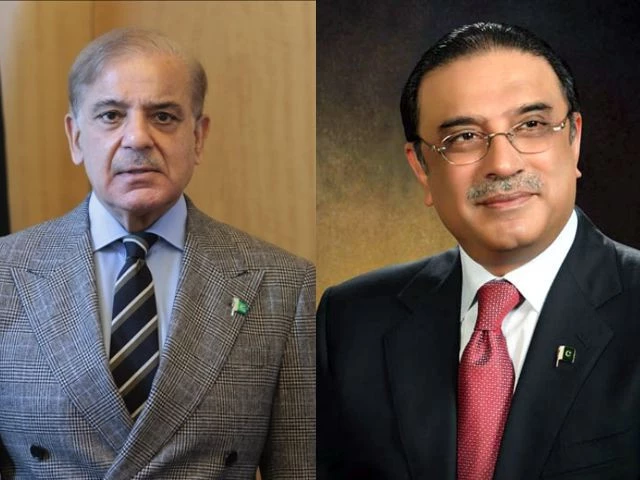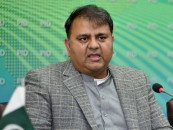PM, President mark nuclear anniversary with pledges of resilience, reform
Leaders urge unity, pay tribute to those who helped Pakistan achieve its strategic nuclear status

Youm-e-Takbeer is being observed across Pakistan today to commemorate the country’s successful nuclear tests conducted on May 28, 1998, in Balochistan's Chagai.
In their separate messages, President Asif Ali Zardari, Prime Minister Shehbaz Sharif, the chairperson Joint Chiefs of Staff Committee (CJCSC) and the services chiefs, stressed that the Youm-e-Takbeer is a tribute to the foresight of visionary leadership and the brilliance of Pakistani scientists and engineers.
PM Shehbaz congratulated the public and described the day as a symbol of Pakistan’s resolve to protect its sovereignty and independence. He said it should now also serve as a renewed commitment to economic transformation.
“Today, on Youm-e-Takbeer, I thank Allah Almighty and congratulate from the core of my heart the entire nation and all patriotic Pakistanis,” said Shehbaz.
As the nation celebrates Youm-e-Takbeer, we thank Allah Almighty for His countless blessings and for granting us yet another glorious victory in the face of recent Indian aggression.
— Shehbaz Sharif (@CMShehbaz) May 28, 2025
Twenty-seven years ago, on this historic day, PM Mian Nawaz Sharif made Pakistan’s defence…
The anniversary marks the nuclear tests carried out on May 28, 1998, in the Chaghi hills of Balochistan, which made Pakistan the seventh nuclear-armed state in the world and the first in the Muslim world. The decision came in response to five nuclear tests conducted by India earlier that month.
Before these tests, former prime minister Nawaz Sharif had faced immense external pressure and offers to abandon the program, Shehbaz recalled.
Today, on Youm-e-Takbeer, we reaffirm our unwavering commitment to stand united in safeguarding Pakistan’s territorial integrity, sovereignty, and independence against any threat or act of aggression. We remain resolute in our dedication to promoting peace and stability—both in… pic.twitter.com/yBkMa8BcJB
— Ministry of Foreign Affairs - Pakistan (@ForeignOfficePk) May 28, 2025
Prime Minister Shehbaz Sharif, said the move demonstrated “iron resolve” in the face of heavy international pressure and economic sanctions.
“Nawaz Sharif represented the aspirations and national interests of the entire nation…and made our geographical borders impregnable forever,” he said.
The prime minister also linked this year’s commemorations to what he called Pakistan’s success in a recent military standoff with India, describing the period of May 6 to 10 as an “unjustified war imposed by India”. He claimed Pakistan’s armed forces and the public had shown “unbreakable unity” and resolve during the confrontation.
“This year, the joys of Youm-e-Takbeer have further increased for a nation filled with victory,” he added.
Shehbaz paid tribute to the scientific and political leadership behind the nuclear programme. He singled out Zulfikar Ali Bhutto, who initiated the programme in the 1970s, and Dr Abdul Qadeer Khan, widely regarded as the father of Pakistan’s nuclear capability. He also praised the contributions of scientists, engineers, the armed forces and the people.
پاکستان کو ایٹمی طاقت بنے 27 سال مکمل
— PTV News (@PTVNewsOfficial) May 28, 2025
آج پاکستان بھرمیں ’’یوم تکبیر‘‘ قومی جذبے سے منایا جا رہا ہے
28مئی1998کو پاکستان نے بھارت کے5 ایٹمی دھماکوں کے جواب میں 6 ایٹمی دھماکے کرکے ملک کے دفاع کو ناقابلِ تسخیر بنا دیا
آج پوری قوم کا سر فخر سے بُلند ہے اور پہلی اسلامی ایٹمی طاقت… pic.twitter.com/WVJ5YJ93NI
“I salute the nation, which made immense sacrifices for the completion of the nuclear programme and wrote a proud story of its determination and faith,” he said.
He called Youm-e-Takbeer not just a celebration of the past, but a call to build a stronger, self-reliant future.
“Today we pledge to make Pakistan an economic power and achieve its true place in the world. Insha Allah. Long live Pakistan.”
In a separate message, President Asif Ali Zardari described Pakistan’s nuclear capability as a “calculated decision” to ensure peace and maintain strategic balance in South Asia.
“Becoming a nuclear power was not merely a demonstration of technological advancement,” Zardari said. “It was to protect the nation from external aggression and safeguard peace through strength.”
Zardari said the country’s nuclear programme continues to serve as a “credible minimum deterrent” amid a changing regional security environment, ensuring that no one can undermine Pakistan’s sovereignty.
He praised the civil and military leadership, scientists and engineers for their efforts, and acknowledged the foundational role of Zulfikar Ali Bhutto. He also credited former prime minister Benazir Bhutto for further advancing the programme during her tenure.
“We also pay tribute to Shaheed Zulfikar Ali Bhutto, who laid the foundation of Pakistan’s nuclear programme,” he said. “And we acknowledge the role of Mohtarma Benazir Bhutto, whose stewardship further advanced and strengthened it.”
Touching on recent tensions with India, Zardari highlighted what he called Pakistan’s “calibrated response” under Operation Bunyan-um-Marsoos—a military action that, he said, was effective in forcing the enemy to cease hostilities.
He said Pakistan remains committed to peaceful coexistence and international law, but warned that the country will never compromise on its sovereignty.
“As we commemorate this important day, let us renew our pledge to uphold and safeguard the sovereignty and territorial integrity of our beloved country.”
The day was marked with official ceremonies, national broadcasts, and messages of remembrance, unity and resilience. Public institutions, military establishments and civil organisations also honoured the scientific and strategic achievement that placed Pakistan on the global nuclear map.




















COMMENTS
Comments are moderated and generally will be posted if they are on-topic and not abusive.
For more information, please see our Comments FAQ